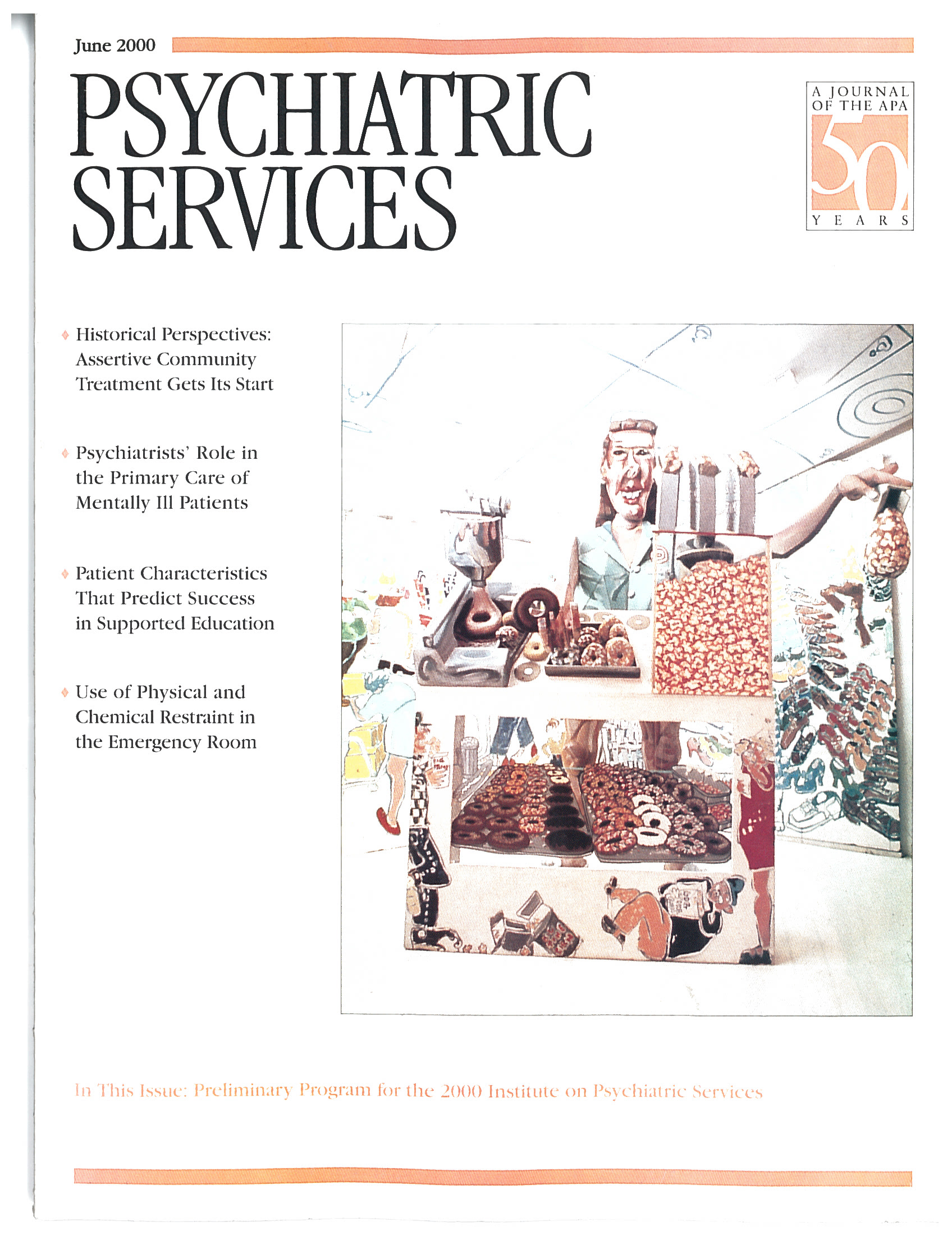To the Editor: We are clients at Community Counseling Centers of Chicago (called C4), an agency serving persons with chronic mental illness who are unable to work. We read with interest U.S. Surgeon General David Satcher's report on mental health published in December 1999 (
1). We want to express our opinions and feelings about some points he made.
The Surgeon General stated that people with severe mental illnesses are not weak or lazy but have real distress. Most of us at C4 work hard to recover. For example, many attend Able and Stable group, where we learn about medications and signs of deterioration, to be thankful for little things, to express ourselves, to relate better to others, and to keep lines of communication open. As another example, one person writing this letters gets paranoid. When she attends therapy groups, it clears her mind. She does not think that people are staring at her so much; she sees that some are trying to help.
Yet stigma continues. Even as we write this, we are worried that people will dismiss our words because they feel mental illness equates with stupidity, which is not the case. They may be under the impression that they are normal and therefore look at mentally ill people as abnormal. Once again, the question of what is normal begs for an answer.
Another point made by the Surgeon General was that though treatment is effective, half the people experiencing emotional disturbance do not even try to get help, fearing punitive attitudes and high cost. With firsthand experience, we encourage those who feel they need aid to get it. We also stress that medications can help, but too often they are regarded as a quick fix. Many times supportive therapy is necessary. The Surgeon General made this point too.
Finally, the Surgeon General's report said that even for insured people, coverage for physical and mental illness is unequal. We agree with Michael Faenza, president of the National Mental Health Association, who stated that he hopes the Surgeon General's report will spur insurance reforms and encourage public funding of worthy programs. At C4 we have an excellent program with much public funding, but other areas of the country have less, especially in rural areas. We ask readers of this letters to support insurance reform and public funding for comprehensive mental health programs for persons with chronic mental illness and, most important, to support programs for working poor people without health insurance, who are the worst off.

